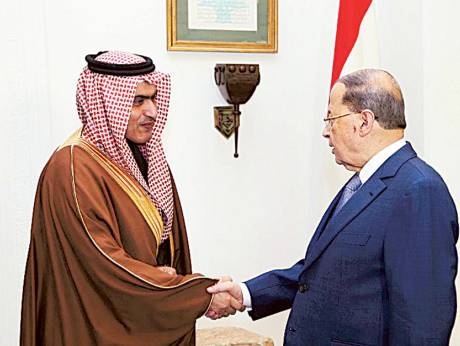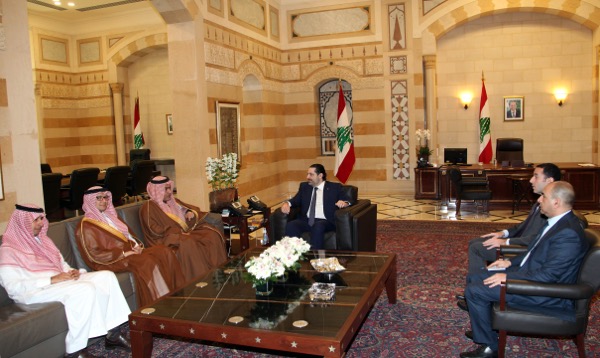
Saudi Arabia will appoint a new ambassador to Lebanon, encourage the return of Saudi tourists and increase flights there by Saudi airlines, the Lebanese president’s office said, in a sign of improved bilateral ties.
The kingdom’s Gulf Affairs Minister Thamer al-Sabhan informed President Michel Aoun of the changes when they met at the presidential palace on Monday, Aoun’s office said in a statement.
Saudi Arabia’s former ambassador left Beirut last summer, and the post has been vacant since.
Aoun, an ally of the Iran-backed Lebanese Shi’ite group Hezbollah, was elected in October in a deal that also saw Lebanon’s leading Sunni Muslim politician, Saad al-Hariri, appointed prime minister.

Aoun sought to mend relations with Saudi Arabia’s Sunni monarchy, which has traditionally backed Hezbollah’s opponents in Lebanon, when he visited Riyadh earlier this month.
Aoun said his visit had helped improve ties, after tensions linked to the regional rivalry between Saudi Arabia and Iran led Riyadh to cancel $3 billion of military aid to Beirut last year.
Lebanon’s president had also hoped his trip would result in a lifting of travel advisories imposed by some Gulf states last year on nationals visiting Lebanon, which severely damaged its tourism sector.
Last year, Riyadh also advised big-spending Saudis not to visit Lebanon.
The tensions had also created uncertainty for an estimated 750,000 Lebanese nationals living and working in Saudi Arabia and in other Gulf Arab states, who transfer between $7 and $8 billion each year to support extensive families.
REUTERS

Leave a Reply
You must be logged in to post a comment.